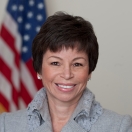
Yesterday, the White House hosted an historic convening of formerly incarcerated citizens, academics, private sector and foundation leaders, and Administration officials to discuss the challenges people face building a life after receiving clemency. The event highlighted our collective responsibility to ensure those who have paid their debt and earned a second chance successfully land on their feet. It is an obligation we have not just to those who have been incarcerated, but to their families and loved ones, whose lives are deeply affected as well.
We heard the moving stories of Americans who had faced the challenges of reentering society after receiving clemency – of adjusting to the often sudden freedoms we so frequently take for granted. They spoke of how hard it was to find work and housing, and to re-establish relationships that often suffered from years of separation – of having to adjust to our daily dependence on the internet and technology, from cell phones to ATMs. Their families spoke of the difficulties of living without their loved ones at home, and the cycles of poverty that are often reinforced when we separate mothers and fathers from their children.
It was a privilege for me to address the convening and speak about the ways their experiences have moved President Obama and so many in his Administration.
Reforming our broken criminal justice system and ending this misguided drug war’s era of mass incarceration for nonviolent drug offenders has been one of President Obama’s top priorities. The President has done his part by picking up the pace of granting clemency. Yesterday’s event followed the announcement of 61 more commutations, which brought the total number of commutations granted by President Obama to 248 – or more than the last six presidents combined.
Yet as we all recognize, our work is not done. Still, too many Americans remain in prison with sentences that do not fit the crime, and that doesn’t make our communities safer. As White House Counsel Neil Eggleston and Deputy Attorney General Sally Yates noted in their remarks, this is not about being soft on crime – it’s about being smart on crime. When we incarcerate people, we have to make sure the punishment is consistent with the offense and that we are fair. That’s why this week, the President reiterated his commitment to ramping up even further the clemency process to remedy injustices in our criminal justice system. Organizations such as Clemency Project 2014, Families Against Mandatory Minimums, and the Open Society Foundation have done such important work bringing people together to process the applications of the thousands of prisoners who deserve clemency consideration. And while we celebrated the progress we’ve made, we also recognized that we need more attorneys, bar associations, and law clinics to step up to review applications – to partner with the government as we undertake this long overdue work.
Lastly, we all reiterated how important it is that Congress pass comprehensive criminal justice reform. Although clemency is an important tool for the President to reverse some of the injustice in our justice system, it is not enough. We need reform that reduces mandatory minimums for certain nonviolent drug offenders, invests in reentry services and support, helps juvenile offenders stay on the right track, and makes our communities safer.
As I said in my closing remarks, we are in a unique moment. Because of the grit and determination of the folks I met who have been granted clemency, and those who support them, I am more optimistic than I’ve ever been that we can take substantial steps to heal a system that has torn apart families and communities for too long. We are our brothers’ and our sisters’ keepers, and we all must make our voices heard. Because we each have the responsibility to pick up each other when we fall.


